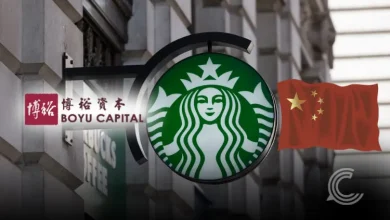Burger King’s $350M China Bet Tests Its Race With KFC and McDonald’s

Key Highlights:
- Burger King partners with China’s CPE in a $350 million joint venture to double its store count.
- The move marks a renewed push to challenge KFC and McDonald’s dominance in China’s fast-food market.
- The American company aims to expand to over 4,000 outlets by 2035 amid changing consumer habits.
In a fresh bid to claim a bigger slice of the world’s second-largest fast-food market, Burger King has announced plans to dramatically expand its footprint in China through a new $350 million joint venture with Chinese private equity firm CPE.
The move, unveiled by Burger King’s parent company Restaurant Brands International (RBI) on Monday, will see the US burger giant sell its controlling stake in the Chinese business as part of an aggressive growth strategy to double its store count in the years ahead.
A High-Stakes Gamble in a Crowded Market
For nearly two decades, Burger King has struggled to keep pace with its global rivals KFC and McDonald’s, both of which have deeply entrenched themselves in China’s urban and suburban dining culture. Despite entering the market in 2005, Burger King remains a distant challenger in the country’s competitive fast-food arena.
According to RBI, the new entity, Burger King China, will leverage CPE’s local expertise and capital to “support restaurant expansion, marketing, menu innovation, and operations.” The company aims to double its number of outlets within five years, targeting over 4,000 locations by 2035, as reported by CNA.
Restaurant Brands International and CPE have announced a $350 million joint venture to expand Burger King China from around 1,250 to over 4,000 restaurants by 2035, marking a major step in one of the world's fastest-growing consumer markets. https://t.co/HNQ1Edgk4N pic.twitter.com/3AJC1hX5Fx
— Invest in China (@investing_china) November 11, 2025
By comparison, McDonald’s operates 6,800 restaurants across mainland China, while KFC leads the pack with more than 12,600 outlets, according to Yum China’s latest data.
Why China Still Matters for Burger King
Despite economic headwinds, China remains a crucial growth frontier for global fast-food brands. As reported by Reuters, international companies are reevaluating their China strategies amid a sluggish consumer recovery, intensifying local competition, and the digitalization of dining through delivery platforms and loyalty apps.
For Burger King, partnering with a domestic heavyweight like CPE offers a faster route to scale in a complex market. The Beijing-based investment firm, which holds an 83% controlling stake in the venture, is expected to help the brand localize its menu and operations to match Chinese consumer preferences, including rice-based items and regional sauces and flavor profiles.
The Competitive Landscape: A Catch-Up Game
Burger King’s challenge lies not only in growing its footprint but also in building brand loyalty in a market already saturated with American fast-food icons. While McDonald’s and KFC enjoy strong recall and robust digital engagement, Burger King’s smaller base gives it room for reinvention.
Industry experts say the brand’s focus on “menu innovation and marketing” signals an intent to differentiate, especially as younger consumers gravitate toward value-driven, tech-enabled dining experiences.
The expansion plan also aligns with the RBI’s global pivot to an asset-light, franchise-led model, enabling faster scalability without a heavy capital outlay; the playbook already yields results in other regions.
Why China Remains the Ultimate Prize for Fast-Food Chains
As global fast-food chains re-think their China strategies, Burger King’s partnership with CPE highlights both the risks and rewards of doubling down on a slowing but massive consumer economy. Despite near-term headwinds including weak consumer sentiment, rising local competition, and cost pressures, China remains too large a market for international brands to ignore.
Home to over 1.4 billion consumers and a rapidly expanding middle class, the country offers scale and digital sophistication unmatched anywhere else. Companies like KFC and McDonald’s have already shown that local adaptation, from tech-driven delivery systems to regionally tailored menus, can deliver sustained growth.
For Burger King, its success will depend on how quickly it can localize, innovate, and connect with younger, value-conscious consumers. If its $350 million gamble pays off, the brand could finally close the gap with its long-standing rivals in the world’s most competitive fast-food markets.



